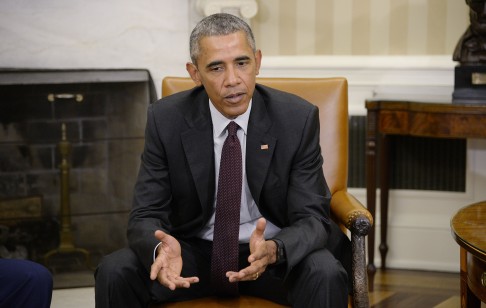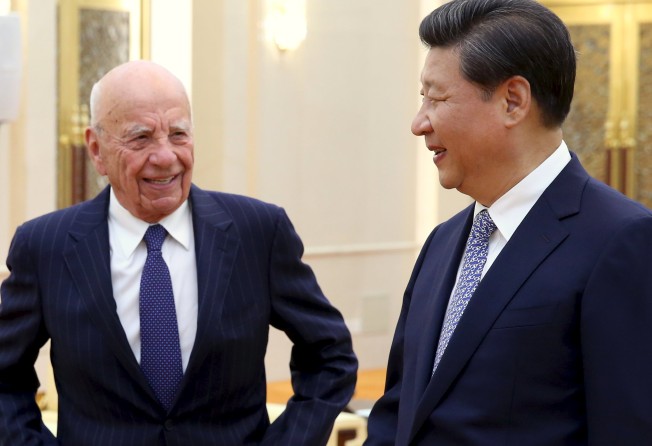
Xi Jinping and Barack Obama unlikely to crack thorniest issues during Washington summit
Agreement on divisive issues like cybersecurity and South China Sea are not likely. Prepare to hear deals on climate change, military cooperation and non-proliferation of nuclear weapons.

It's unlikely President Xi Jinping and his American counterpart Barack Obama will reach any substantive agreements on the most contentious issues dividing their two nations, such as cybersecurity and increased tensions in the South China Sea during their summit next week, observers say.
Instead, the leaders were expected to announce deals in areas where there was less disagreement, such as climate change, military cooperation and non-proliferation of nuclear weapons, they said.
Xi arrives in Seattle on September 22, for the four-day state visit - his first to the United States in his capacity as president.
Obama is facing pressure at home both from presidential hopefuls and officials within his own administration to address concerns over China's alleged cyperespionage, including theft of intellectual property.
The two leaders were expected to agree to resume regular cybersecurity talks, by either reopening existing working groups China suspended last year after the US charged five PLA officers with hacking American companies, or through establishing new channels, observers said.
Jie Dalei, an assistant professor of international relations at Peking University, said Xi might agree to resume communication through the working groups if he wanted to produce results with the visit. "But I'm not expecting treaties [on cybersecurity] as the gap between the two countries is so wide," Jie said.
National Security Adviser Susan Rice met senior Chinese officials in Beijing on cybersecurity issues in late August. Immediately after her visit, Beijing sent security chief Meng Jianzhu as Xi's special envoy for four days of talks on the issue in Washington last week.
The arrangement showed that both sides realised they needed to move forward and establish a rule of conduct to avoid confrontations, said Huang Jing, a professor of public policy at National University of Singapore.
Bonnie Glaser, a senior Asia adviser at the Centre for Strategic and International Studies, a US-based think tank, said whether the working groups would be resumed depended on Beijing's willingness to drop long-held demands.
"They want the US to promise that the five military officers would not be arrested if they appeared in another country that the US has an extradition treaty with, but the US refused to offer that promise," Glaser said.
She believed the four days of talks between Meng and American officials had produced some results. "At the minimum, I think they would agree to resume the talks," Glaser said.
Obama is also expected to raise the issue of China's construction in the South China Sea, and call for all claimants to stop land reclamation and work more on diplomacy, particularly on negotiating a code of conduct between China and members of the Association of Southeast Asian Nations. But Beijing is not likely to change its position on the issue, Huang said.
The presidents are expected to take up human rights issues - Beijing recently passed a national security law, and issued a draft law on non-governmental organisations, and this summer carried out a crackdown on rights lawyers and activists.
When Vice-President Joe Biden had lunch with Vice-Premier Liu Yandong earlier this year in Washington, they discussed the NGO draft law almost the entire time, Glaser said US officials had told her. "The Chinese don't want this to be on the agenda but they are prepared for it," she said.
The Chinese don't want this to be on the agenda but they are prepared for it
Negotiations on a bilateral investment treaty have been progressing slowly, and the presidents are unlikely to be in a position to make any significant announcement on it.
China is in talks with Washington to reduce the scope of so-called negative lists of sectors closed to the other side's investors, but David Dollar, from the Brookings Institute, said it would be hard for both sides to reach an agreement.
"This is normally a long negotiation … My understanding is that China has a long negative list and it would have to shorten it by a lot to reach an agreement," he said. "More likely the two sides will express a serious commitment to reach an agreement during 2016 but not have a specific outcome this time."
The two militaries were also expected to sign a code of conduct for unexpected encounters in the air, Glaser and Jie said. It would be an annex to the military-to-military agreement ensuring operational safety between surface naval ships signed during the summit in November.
"This is an important step forward," Glaser said.